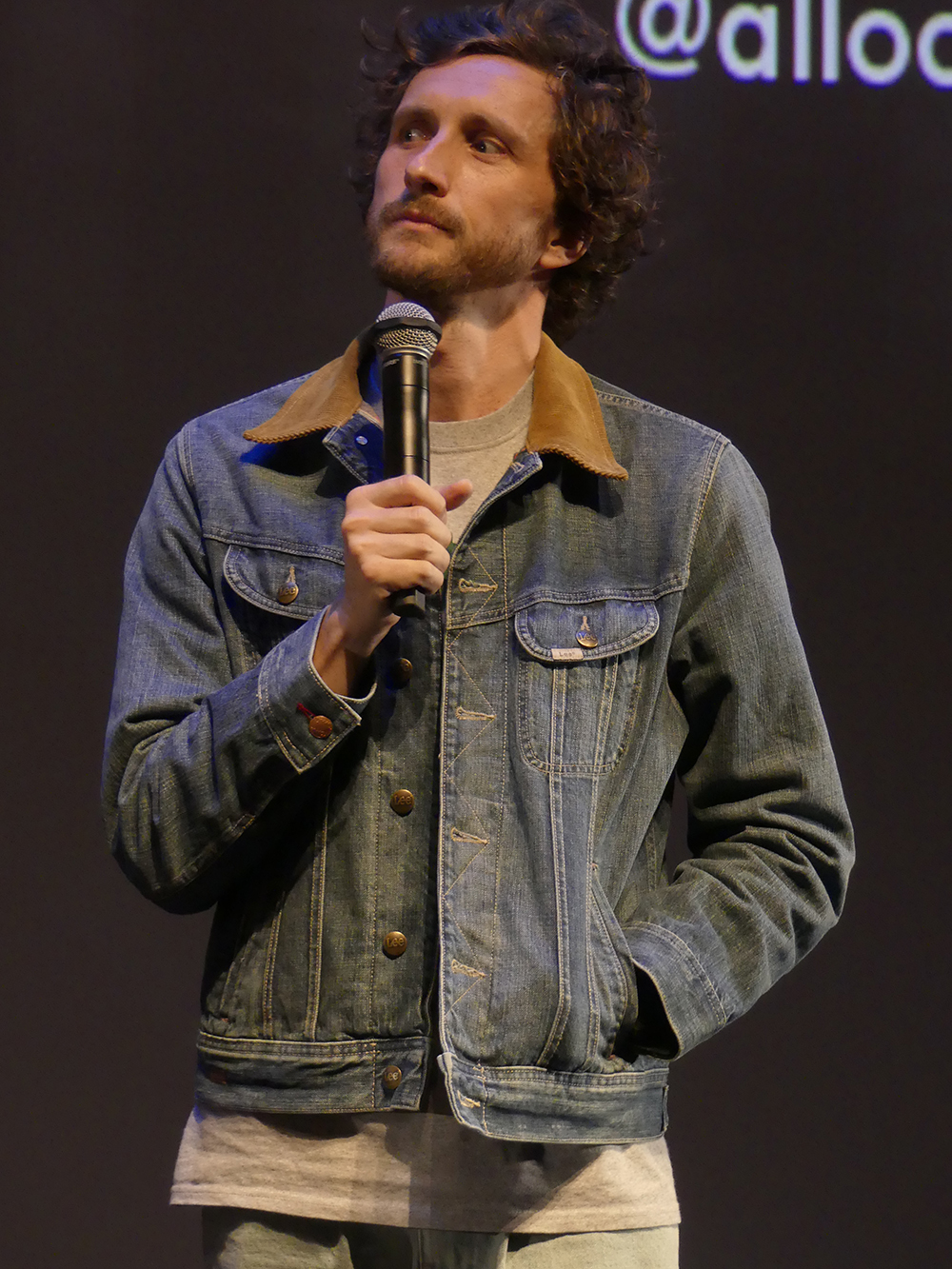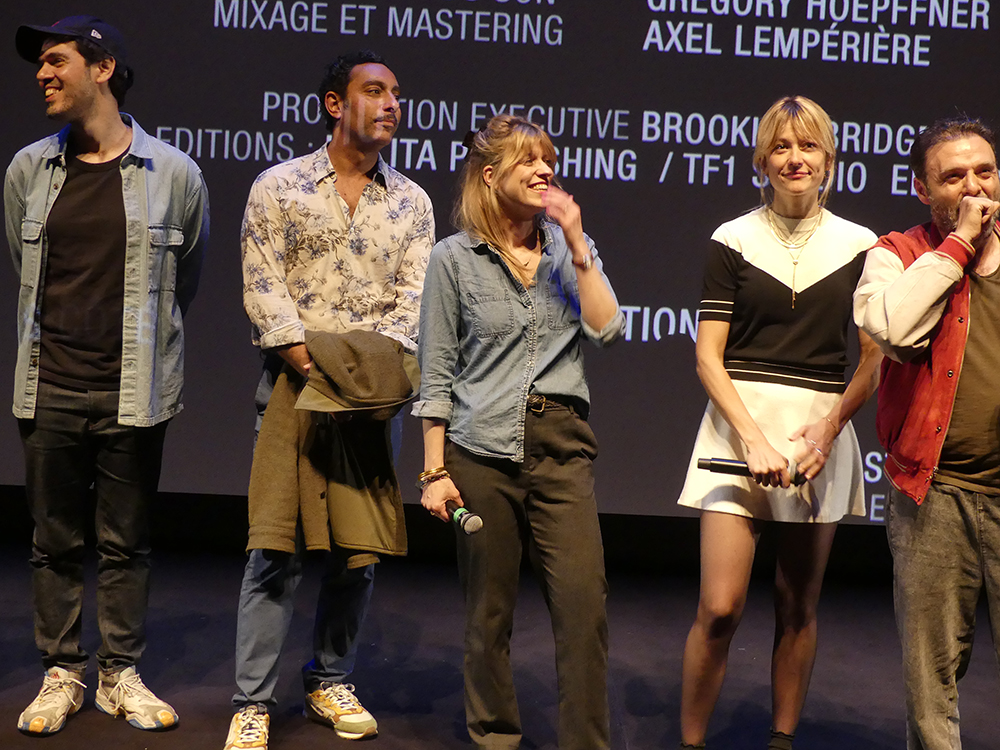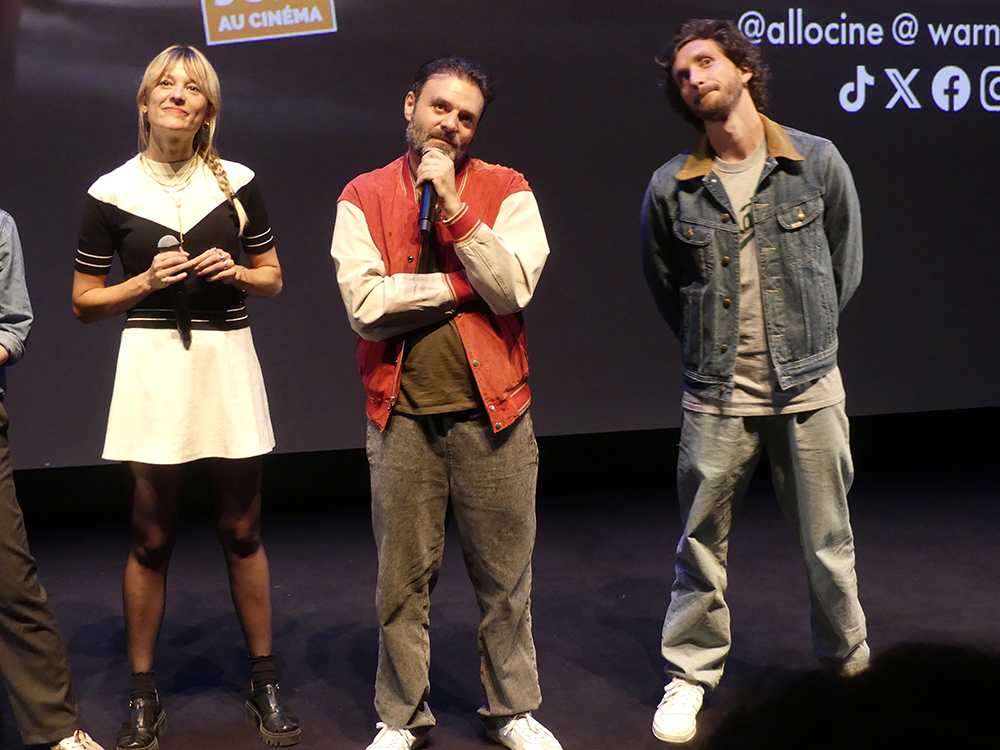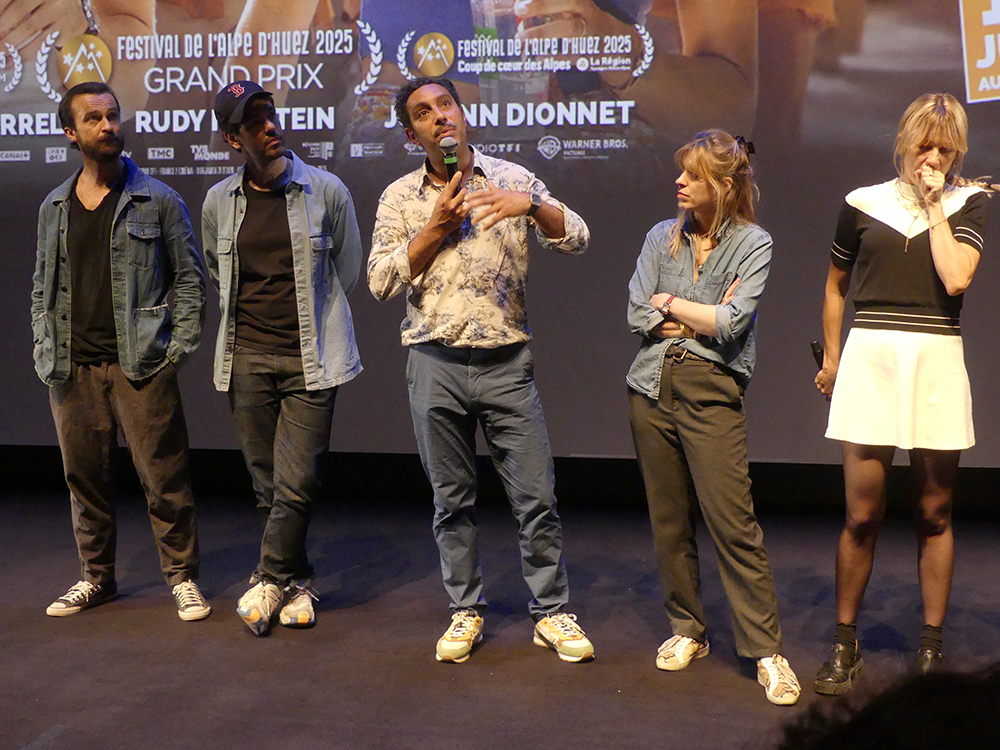Premiere - Avignon: a bright and warm comedy that celebrates the inner workings of live theater with finesse and tenderness
By Mulder, Paris, Forum des Images, 03 june 2025

On June 3, 2025, the Forum des Images in Paris was filled with laughter and applause during a new edition of Club Allociné, a private evening dedicated to a passion for cinema, meeting talented people, and getting a sneak preview of a film that is set to be a big hit. This time, the spotlight was on Avignon, the first feature film by Johann Dionnet, co-written with Benoît Graffin. In front of a packed house, the director was accompanied by several members of the cast—Baptiste Lecaplain, Elisa Erka, Amaury de Crayencour, Romain Francisco, Rudy Milstein, Ariane Mourier, and Lyes Salem—for a lively and engaging discussion with the audience. Our media outlet was there to capture not only the excitement of this special moment, but also the promise of a film that is as funny as it is intelligent, rooted in a French cinematic tradition that knows how to combine lightness and depth.
From the very first minutes of the screening, Avignon charms with its disarming sincerity. What could have been just another summer comedy quickly reveals itself to be a declaration of love for the theater, its illusions, its tensions, its emotional outbursts, but also its excesses and fragilities. Winner of the Grand Prix and the Canal+ Prize at the last Alpe d'Huez International Film Festival of Comedy, Avignon is a generous work, nourished by keen observations on the daily lives of artists and the fleeting beauty of encounters that only a festival like Avignon can bring about. The film is set in the sun-drenched alleys of the papal city, brilliantly captured by cinematographer Thomas Rames, who makes the setting a character in its own right: from the Rue des Teinturiers to the Palais des Papes, each shot exudes the authenticity of a mythical place that becomes, for the duration of a summer, the beating heart of live performance.

But if the film works so well, it is first and foremost thanks to the subtle writing of the Dionnet-Graffin duo. They manage to evoke the precariousness of the artistic world without falling into miserabilism, to laugh at its absurdities without despising it, and to capture what is known as the “magic of theater” without succumbing to naivety. The character of Stéphane, played with touching authenticity by Baptiste Lecaplain, symbolizes this constant tension between ambition and doubt, dreams and lies. By embarking on a deception to seduce a famous actress, he becomes a mirror for so many artists who are willing to do anything for a chance, a moment in the spotlight, a role. This lie becomes the comic driving force of the story, but also its emotional springboard: the more the misunderstanding thickens, the more the film reflects our own fears of being exposed in life.
The presence of Johann Dionnet himself in front of the camera reinforces the impression of a project conceived as a work of craftsmanship, both personal and collective. We are sometimes reminded of Bertrand Blier or Nicolas Bedos in this way of mixing tones, of bringing together farce and tenderness, of daring to create an ensemble comedy where the supporting roles shine as brightly as the leading ones. The choice of actors such as Elisa Erka, Amaury de Crayencour, and Rudy Milstein, all of whom are spot-on and charismatic, demonstrates a desire to build a credible world populated by characters you might bump into on a terrace at the Off festival, handing out flyers or rehearsing in a shady corner. This world is rarely filmed with such affection—and it's no coincidence that the film has already won over audiences at its local previews at the Capitole du Pontet and the Vox in Avignon.

Beyond its humor, Avignon is also a light but relevant meditation on the need for recognition, the loneliness of the artist, and the search for meaning in a society where creative professions are often marginalized. There is a scene, towards the middle of the film, where an actor doubts his legitimacy after a performance in front of a handful of sleepy spectators: it is deeply moving in its simplicity, and resonates deeply with anyone who has ever tried to create something in the face of indifference. The film never tries to make you cry, but it touches you deeply with its empathetic lucidity that avoids any pathos. This tone, both joyful and melancholic, is what makes the project so unique.
Finally, the intelligence of the production must be highlighted: between Nolita Cinéma, TF1 Studio, France 2 Cinéma, and distribution by Warner Bros France, Avignon benefits from solid support that bodes well for a successful national and even international festival run. It's not every day that a French comedy dares to stray from the beaten path to explore territories as vibrant as street theater. At a time when many films are looking for ready-made formulas, Johann Dionnet has created a unique, generous work that deserves to be championed. For those of us in the theater that evening, the hearty laughter, the enthusiastic applause, and the passionate questions from the audience testified to the already strong bond between the film and its audience.

With its release scheduled for June 18, 2025, Avignon is more than a film: it is an invitation to remember the first time you stepped on stage, believed in a script, or felt excited about a role. It is an ode to the stage and to those who tread it with courage, sometimes clumsily, but always with faith. And if, after leaving the screening, some people dreamed of attending the next Avignon Festival with a new perspective, that is undoubtedly the film's greatest victory.
You can discover our photos in our Flickr page
Synopsis:
Stéphane, a struggling actor, arrives with his troupe at the Avignon Festival to perform a light comedy. There he meets Fanny, a renowned actress, and falls under her spell. Taking advantage of a misunderstanding to get closer to her, Stéphane finds himself caught up in a lie that he will have to maintain throughout the festival... but which quickly spirals out of control!
Avignon
Directed by Johann Dionnet
Produced by Mikael Govciyan
Written by Johann Dionnet, Benoît Graffin
Starring Baptiste Lecaplain, Elisa Erka, Amaury de Crayencour, Johann Dionnet, Romain Francisco, Rudy Milstein, Ariane Mourier, Lyes Salem, Alison Wheeler
Director of photography: Thomas Rames
Production companies: Nolita Cinéma, Studio TF1 Cinéma, France 2 Cinéma
Distributed by Warner Bros (France)
Release date: June 18, 2025 (France)
Running time: 102 minutes
Photos & video: Boris Colletier / Mulderville

